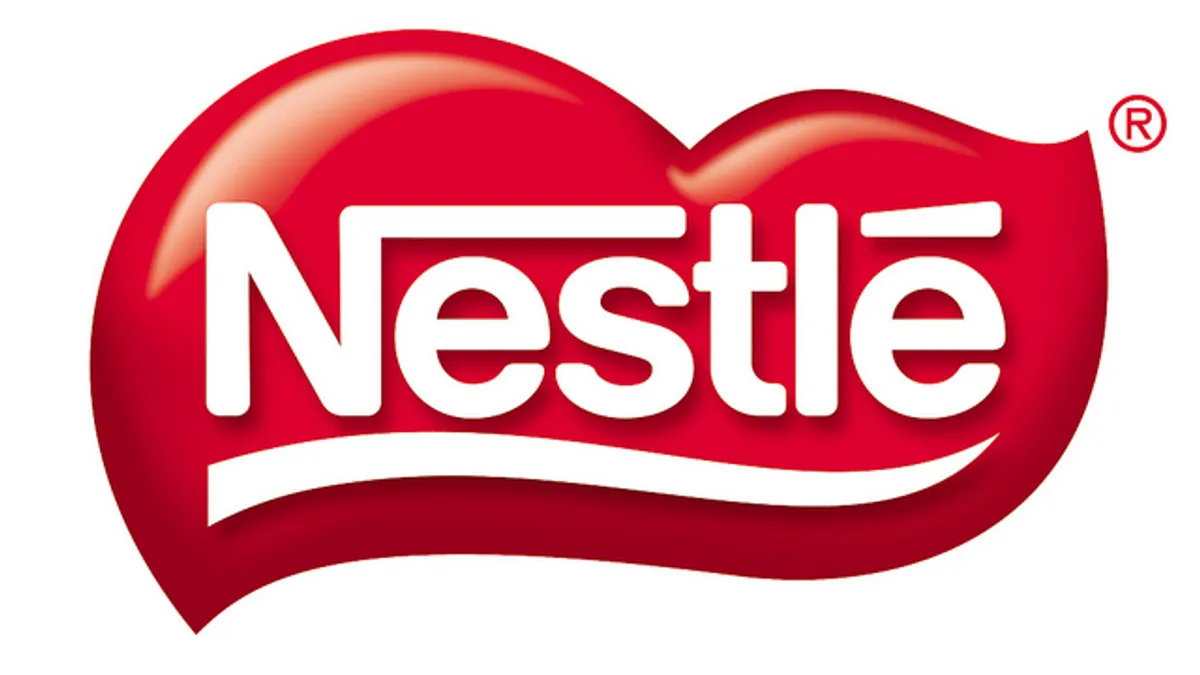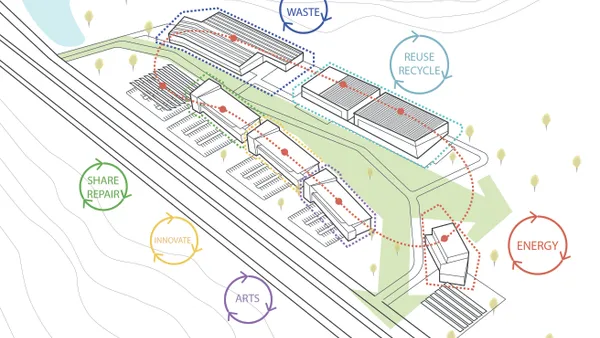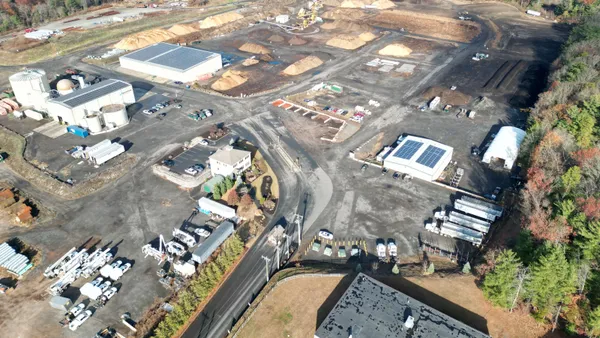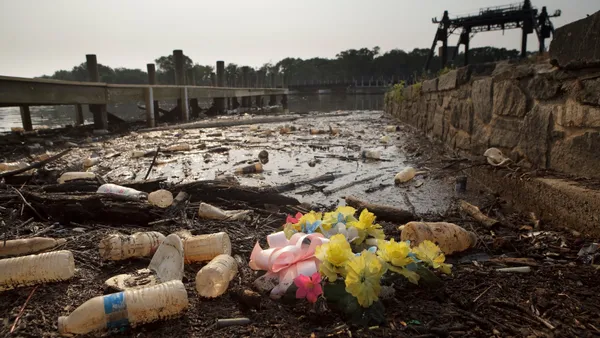Dive Brief:
- Nestle announced plans to make 100% of its packaging recyclable or reuseable by 2025, with a vision that none of the food giant's packaging — including plastics — ends up in landfills or as litter.
- CEO Mark Schneider said plastic waste is one of the biggest sustainability issues the world faces, and tackling the problem requires a collective approach. He said Nestle will focus on three goals: eliminating non-recyclable plastics; encouraging use of plastics with better recycling rates; and eliminating or changing complex combinations of packaging materials. The announcement did not include specific benchmarks or action items.
- The company's ambitions include helping with the development of strong collection, sorting and recycling schemes in countries where it operates; working with industry leaders to explore different packaging solutions; labeling product packaging with recycling information; and promoting a market for recycled plastics by increasing their use in food packaging.
Dive Insight:
Switzerland-based Nestle has joined the growing sustainability choir a year after Unilever, its largest rival, announced plans to move completely to recycled or re-usable packaging by the year 2025.
The company already is working on changing the colors used in plastic packaging, Nestle sustainability expert Duncan Pollard said on a media call, noting lighter colors are easier to recycle.
Nestle's vow to take things a step further by helping countries that use its products to create better recycling systems and to use more recycled plastics in its own packaging seems encouraging in a world where customers, especially millennials, clamor for sustainable products and indicate they are willing to shell out additional dough to pay for them.
A report from The Hartman Group found about 70% of consumers want retailers to be more transparent about sustainability efforts.
About two-thirds of global customers will spend more on a product if it comes from a sustainable brand, according to Nielsen's 2015 Global Corporate Sustainability Report. Three out four millennials said they'd pay more for green products, and 81% of young adults surveyed said they expect their favorite companies to make public declarations about sustainability efforts.
Though Nestle's declaration is admirable, some environmental groups are crying foul. In a written statement, Greenpeace said without quantifiable goals, Nestle is creating good feelings — but isn't committing to meaningful action.
"Nestle's statement on plastic packaging is nothing but greenwashing," Yves Zenger of Greenpeace Switzerland said. "The group is jointly responsible for the serious plastic crisis in the oceans. It's not the consumers that are the problem, as Nestle wants us to believe, but the corporations that make the garbage."
Companies like Nestle should reduce plastic waste and eventually move to eliminate disposable plastic packaging, and companies and consumers should accept the plastic crisis cannot be recycled away, he said.
Other manufacturers are also touting their recycling plans.
Unilever recently struck a partnership to pioneer a new technology that converts PET waste back into virgin-grade material for use in food packaging.
Coca-Cola announced plans to collect and recycle the equivalent of 100% of the packaging it sells globally by 2030, McDonald's, Chipotle Mexican Grill, Starbucks and Dunkin' Donuts have also made similar pledges.
Although only time will tell whether such strategies are effective both in satisfying customers and improving the environment, the call for sustainability is strong. Even more companies will likely be adopting both green practices and the marketing efforts to promote them.














